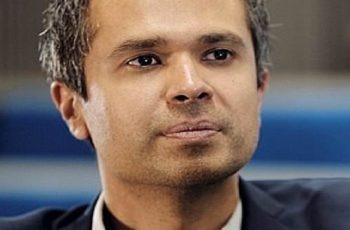Slow down grandma!
An increase in the number of HIV cases among people over the age of 50 has led researchers to believe that this could be because of the surging sexual activity among senior citizens.
According to a recent study published in the medical journal Lancet HIV and conducted by researchers at the European Centre for Disease Prevention, the diagnosis rate among British seniors had increased by an average annual rate of 3.6% from 2004 to 2015, as compared with the yearly decline of 4% among younger people during the same time period.
The study tracked HIV diagnoses in 31 European countries between January 2004 and December 2015. Around 54,102 people over the age of 50 – equivalent to 2.6 in every 100,000 – received an HIV diagnosis during the study period. The number of new HIV cases rose by 2.1% each year between 2004 and 2015 among people over the age of 50, with people in this age bracket accounting for 17.3% of the new HIV diagnoses in Europe in the year 2015.
This number is lower than the figure calculated for younger people (aged 15 to 49) – 11.4 cases per 100,000 – but while diagnosis rates for younger people has dropped, the figure for older Europeans has soared. For instance, in 2004, the United Kingdom listed around 3.1 new HIV cases per 100,000 people over the age of 50. This number had increased to 4.3 per 100,000 by the end of the study.
The HIV diagnosis rate among people over 50 rose in 16 countries which included Belgium, Germany, and Ireland. Estonia, Latvia, Malta, and Portugal were among the countries with the highest diagnosis rates, where more than seven new cases of HIV were diagnosed per 100,000 older people by 2015.
Over 36 million people were diagnosed with HIV/AIDS globally in 2015.
“Our findings suggest a new direction in which the HIV epidemic is evolving. We see a steady increase in the number of new HIV diagnoses among older adults in the region,” said Dr. Lara Tavoschi, a scientific officer at the ECDC and lead author of the study.
Dr. Tavoschi confirmed that the manner of transmission was mostly through heterosexual sex, noting, “We need to increase awareness campaigns among older age groups.”
According to the research, the increase in HIV cases is due to the increase of middle-aged to older people suddenly finding themselves single again after a divorce and once again being active in the dating world, engaging in casual sex along the way.
“People are coming out of long-term relationships and thinking that condoms are only for contraception. Many people aren’t aware HIV is still an issue, they think it has gone away, so they can be quite blasé about protection,” HIV and AIDS support charity The Crescent Chief Executive Iain Murtagh said.
These days, one in six new HIV cases in Europe involves a person over their 50’s. Dr. Tavoschi suggested subjecting older people to routine physical checkups when they visit their general practitioners to police this occurrence.
People over 50 were also more likely to be diagnosed with advanced HIV disease, meaning they had been already sick for a long time without them knowing about it, the study showed.
Researchers at the ECDC analyzed levels of CD4 immune cells – the cells damaged by HIV – of over 60% of the individuals who were diagnosed in 2015 to find the proportion of people who were diagnosed in an advanced stage of their disease. And 47% of people among all age groups were diagnosed late. However, when divided by age, 63% of people older than 50 were diagnosed late as compared with 43% of people in the younger age bracket who also got a late diagnosis.
“Being HIV-positive and not knowing may endanger other people by transmitting the disease unknowingly,” said Dr. Tavoschi.
For her part, Professor Janet Steeley of the London School of Hygiene and Tropical Medicine said: “Many older people are sexually active and their sexual health and behavior affect HIV transmission. Yet older adults have been largely neglected by the prevention community.”
The U.K. is taking steps to address this matter. It has a nationwide HIV prevention program, which utilizes local government measures and social media marketing to hold national HIV testing weeks and a campaign called “It Starts With Me” to encourage condom usage and HIV checkups, reduce stigma about the matter, and inform people about sexually-transmitted diseases and safe sex practices.
If you found this article helpful, please share with friends and family by clicking the button below.




